- Home
- David Bernstein
Witch Island Page 3
Witch Island Read online
Page 3
“I know it’s hard. We all miss him. Did you make it over to his grave yet?”
A chill ran down Jim’s spine every time his mother or father said the word “grave” when referring to his brother. It had been five years, and although he was accepting of the fact, it still bothered him to think about Greg’s rotting corpse lying six feet underground. He hated visiting his brother on the day of his death, preferring to visit on Greg’s birthday, a celebrated occasion. But his parents didn’t see it that way.
“Not yet,” he said, “but I’ll stop by on my way over to Gwen’s.”
“Do you want to accompany your father and me? We’re heading over there as soon as he gets home.”
“No, that’s okay. I’ve got some things I need to do. I’ll go later.”
“Okay. I’ll see you afterward, then.” She rubbed his head, turned and walked out, closing the door behind her.
He still couldn’t fully comprehend that his brother was dead. For some reason, he felt he’d get to see him again, yet he wasn’t sure how he felt about the afterlife. He guessed the details weren’t important, just that when the time came, all would be okay again. As time went on, the pain dulled, but at the same time, the longing to see his brother grew. Death was just plain weird.
On top of it being the five-year anniversary of his brother’s drowning, which took place just off the shores of Witch Island, his friends had planned an outing there.
The original idea came from Paul, and after a quick okay from Jim, the destination for their graduation party was set. The island was the perfect place to get away from everyone. There were a lot of parties going on—at people’s houses, up in Black Rock Mountain—but Jim’s friends wanted a small gathering just for themselves, close friends and a place the police wouldn’t think to show up.
Of course no one, not even Jim, had realized that the last day of school fell on the anniversary of his brother’s passing. Everyone had cleared their schedules, including Steve who hadn’t had a night off in months. Jim couldn’t change the date, and truth be told, he didn’t want to. Greg would want him to go, have fun and get over his fear of the place. His brother would’ve been extremely disappointed in him if he backed out and ruined everyone’s fun, or went and didn’t have a good time himself.
Still, he felt a great uneasiness creep into his bones. He was going to be heading to the place where his brother had died, the infamous Witch Island, a supposedly cursed place.
He hadn’t been there when his brother had drowned, but he’d heard the story from Greg’s friends, the people who had been present.
After a night of binge drinking, Greg and a few friends went down to the lake for a midnight swim. The moon was full, casting a soft glow over the water. Greg was a fantastic swimmer, and whether it was because he was drunk or just wanted to show off, he felt the need to impress a girl he was with. He swam out to Witch Island, his friends hooting and hollering, teasing that the witch would get him. Everyone was having a good time. They were able to watch Greg swim out, but eventually they lost sight of him, the moon’s illumination only supplying so much light. Greg was supposed to yell back when he reached the island, but he never did, nor did he return.
Panicked, his friends eventually called the police. Greg’s body was found just off the shore of the island. It was assumed that his legs became entwined with underwater weeds, he grew tired and drowned.
As soon as the news hit the Ryans, Jim’s grandparents came into town. They were originally from the area, but had moved to Florida. Without hesitation, they blamed the island. As kids, they were forbidden to go near the place, just as their parents had been forbidden. Back then, people feared it—not like today’s kids, who didn’t believe in curses or true evil.
Jim’s parents, as well as Jim, knew of the legend of Margaret Rivers. The whole town knew of it. Jim didn’t think his parents believed in the story—he sure hadn’t—but then his brother drowned off the island’s shores, and his and his parents’ fear of the place began.
From that point on, his mother made him promise he’d stay away from the island. She didn’t even want him going to the lake. Jim’s father sold the family’s two canoes.
Since Greg’s death, Jim had been to the lake, but never to, or near, the island. At first, he let the superstition about the island get to him. He had nightmares of his brother’s drowning, of the witch coming to take him too. He wondered if the legend was true—not only if a woman had died there, but if she had been a witch, and if so, did her spirit roam the place?
As time passed, Jim mourned his brother, and he came to hate the story of Margaret Rivers. There were no such things as witches or haunted islands. He wasn’t going to blame Greg’s death on some bullshit legend. His brother had acted foolishly, and it cost him his life.
A little under a year after Greg’s funeral, Jim’s mother came to his room and wanted to have a talk with him, and for the first time, it wasn’t about Greg or how Jim was doing.
Jim put aside the novel he was reading, finding books the easiest way to escape reality, and listened. She took a seat on his bed, looked at him and smiled.
“I’ve asked you to stay away from the island, the lake, but—”
“Mom,” Jim said, interrupting, “I haven’t gone there. You don’t have to worry.”
“I know, and I trust you, but I know your friends go to the lake on occasion, to swim, fish and boat. And as much as I trust you, I know kids will be kids.”
Jim rolled his eyes, trying to stay calm. “Mom—”
“I was young once too, believe it or not,” she said, talking over him. She wasn’t looking at him now, but at the object in the palm of her hand. It was a ring. “I promised my parents that I wouldn’t do certain things, but did them anyway, just like I know you probably have and will. It’s only natural to rebel.”
Jim wanted to refute what she was saying, but held his tongue. She was right. He was only thirteen and had already done things he knew his parents wouldn’t approve of, like watching x-rated movies and smoking cigarettes.
“Please, don’t go to the lake. I beg you.” Her eyes were teary, almost trembling with worry. “Tell me you won’t go to the lake, to the island. Especially the island.”
“I won’t. I—”
She put a finger to his lips, silencing him. Shaking her head, she said, “Don’t promise. Just tell me you’ll do your best to stay away.”
“I won’t go near the lake,” he falsely assured her, already feeling the guilt of his lie. He couldn’t tell her he’d never go there. Most of the neighborhood used the lake to fish and swim. What was he supposed to do, tell his friends his mommy wouldn’t let him?
“And tell me you won’t go near the island.”
“Um, the island is part of the lake.”
“Just tell me you won’t go there.”
“I won’t,” he said, trying to sound sincere, then added, “I want no part of that place.” Another lie. As much as he didn’t want to go there, he did want to go. He needed to go. Stepping onto that island would prove to him that there was no witch. Maybe he wouldn’t go there now, but when he was older, he was going. He wished he could tell his parents how he felt, but they’d shut him down before.
“But,” his mother said, inhaling through her widening nostrils, “if you ever do find yourself going to the lake…especially the island, please wear this.” She held out the ring she had been fiddling with.
Jim took the item and admired it closely, though there wasn’t much to it. The ring was heavy, made of iron, he guessed. The top was flat. A pitchfork-like symbol was embossed into the material.
“You want me to wear this?”
His mother nodded. She placed her hands over his, the ring within. “Please, Jim. If you do anything, wear this ring whenever you go to the lake.”
“Okay…” he said, confused.
“Look, there are things in this world we don’t understand. Maybe the stories about the island are true, maybe not. Maybe the p
lace is cursed, riddled with bad luck, or maybe your brother’s drowning was an accident. The point is, we just don’t know.” She removed her hands from his and sighed. “That ring was made a long time ago. Supposedly right after Margaret Rivers was killed. It was your grandfather’s and his father’s before him and so on, passed down through the generations. It was created to protect the members of the families whose ancestors killed the witch. There were five people who witnessed her death.”
“What are you saying?” Jim asked. “You actually believe in witches?”
“I’m telling you that I have no idea what to believe. Your great-great-grandfather was one of the men responsible for Margaret Rivers’ death, at least according to your grandparents. I’d heard the legend of the witch when I was young. It was scary of course, but as we grew older, we laughed at the old people and their tales. I never believed in the legend until Gregory died out there. It got me thinking, brought the story of the witch back to life for me. My parents believed it, warned us to stay away. We had no reason to go there, so we never did. Your brother was too good of a swimmer to have drowned. He’d swum in the lake hundreds of times—”
“Mom,” Jim blurted, “I know how great of a swimmer he was, but he was wasted. He got tired, tangled up in the weeds and drowned. There’s no witch.”
“Please,” she said, “wear the ring for me if you go to the lake. I can’t prevent you from going, but if you do, please wear it.”
“I can’t believe this,” Jim said, sliding off his bed. He paced in a small circle. “My great-great-grandfather murdered a woman because he thought she was a witch?”
“Times were different back then. People were ignorant. Maybe it was murder, but there’s a chance it wasn’t, that the woman was a witch.”
Jim shook his head.
“All I ask is that you wear the ring, okay?”
Jim stared at the ring. It was kind of cool looking, like something ancient, maybe found in a deep cave way underground. If anything, he now had a family heirloom with an interesting story behind it, one he could pass on to his kids, of course making sure they didn’t believe in the legend. He didn’t have any plans to visit the island—the lake, sure, but not the island—at least no time soon.
“Okay,” he said, “I’ll wear it if I go to the lake.”
She got off the bed and hugged him. She came away with tears in her eyes. “I know how this looks, but thank you, Jim.” She smiled, wiped away a few tears and left the room.
That was about four years ago. Jim had had time to think, time to ponder. His certainty that the legend of Margaret Rivers was bullshit had waned at times. He grew scared of the island, wanting nothing to do with it. He’d been to the lake a number of times since then, usually just hanging out at the beach or swimming within the roped-off area, never telling his parents, but always wearing the ring like he told his mother he’d would.
Tonight was a chance to set his fears straight, to prove the legend of Witch Island was nothing more than a legend. He had listened to his mother and wore it whenever he went to the lake, but he also wore it other times, so as to not have his friends ask him why he only wore it to the lake and nowhere else. If the truth got out, people might think him weird, that he really believed in the legend.
Jim had never revealed his family history to anyone except Gwen, who found the story incredible. “I can’t believe I’m dating someone related to the Witch Island legend,” she had said, then promised to not tell anyone. He never told her why he wore the ring, leaving that part of the story out, saying it was simply a family heirloom.
Tonight would be different, though. Jim decided to tell his friends the truth about everything, even the ring. Maybe it would spook them a little—at least he hoped it would. And he’d make sure to wear the ring, the relic adding to the atmosphere of the story.
Chapter Four
Sheriff Frank Montgomery drove his town-issued Chevy Tahoe down Lake Road at a steady speed of thirty miles an hour. He drove with the windows down, enjoying the calmness of the hour and the refreshing breeze of a day with low humidity. Normally, he’d welcome such wonderful weather, but not today. The gorgeous conditions would only add to the craziness of the evening. He had always dreaded the last day of school. The calls would start coming in shortly after dusk, like they usually did, when the partying began. It was always the same, and the night was sure to end up with a number of noise complaints, kids driving around drunk, unsupervised parties getting busted and his men having to traipse through the woods looking for the underage party-goers at some kegger.
Since he had been a teen, kids had been partying in the woods, the same places being used, and no secret to the police. He wondered why new locations hadn’t been found, and why all the kids couldn’t just head off to those, keeping the town uneventful and quiet.
Teenagers today were more brazen and unruly than ever. It seemed like each generation became more and more disrespectful, the human spirit deadening. He knew his generation was looked at as rebellious, but they still knew their place and had respect for their elders, unlike today’s teens. He wasn’t sure as to the reason for worsening behavior. Maybe something in the food, or all the music and television shows, or the liberals with all their everyone is equal bullshit. It was probably a combination of everything, including chemicals in the food. Big corporations were always finding cheaper ways of making a product, regardless of how it affected the masses, the little people. Kids weren’t just crazier than ever, but smarter too, and at a younger age.
Truth be told, he had no damn idea what the real problem was, but he feared what the country would look like in the future, with so many bad seeds out there—his son, Billy, leading the pack.
Frank dreaded to think what kind of trouble his son would get into tonight, hoping Billy didn’t wind up getting himself, or anyone else, killed.
Frank couldn’t believe his son had graduated. The school had probably just wanted the kid out of there, not wanting to deal with him anymore, or his father, who got him out of trouble.
Having turned eighteen this year, Billy was now an adult, and no longer able to hide behind the law like he’d done before. Frank should’ve dealt with the kid when he was younger and saw the trouble beginning. At the time, he’d thought it was just a phase. But after his wife died, a piece of him died too, and he dove into his job, leaving Billy to fend for himself. The kid was only twelve.
Frank was the smoker, yet it was his wife who had died of lung cancer. He was devastated by her death, so torn up that he’d lost himself, even forgetting he had a son to raise. He pulled as much overtime as possible, sometimes sleeping at the office. Other times, he’d go to O’Hoolihan’s or one of the other bars outside of town, and get drunk.
He hadn’t been much of a father since his wife passed, letting his son go about as the boy pleased, getting him out of trouble, feeling bad for the kid.
For a while, he had his drug-abusing drunk of a sister help raise Billy, from the age of twelve to sixteen, until she overdosed on heroin and died while Billy was in his room. The kid had been the one to find her in the morning with the needle sticking out of her arm, eyes rolled back and foam dripping from her mouth.
After that, Frank realized he needed to wake up and be a father, be there for his son, the only family he had left. But it was too late. Billy was royally screwed up. He tried getting his son to see a counselor, but each one wound up sending his son to someone “better suited” for Billy’s issues. With each year that passed, Billy’s behavior worsened.
Tonight, Sheriff Montgomery could only hope his son would survive to see another day outside of a jail cell.
He pressed the gas pedal a little harder as the road drew closer to the lake. It wouldn’t take much for a vehicle to wind up in the water, as there wasn’t much room to swerve along the stretch of asphalt he was currently on. Evergreens and an assortment of leafy trees lined the hill on his left. Weeping willows dotted the shoreline on the right and were about the only things
between himself and the water. Peering out at the lake, he saw the island. A chill shot through him, just as it always did when he laid eyes on the place. He glanced at the iron ring with the pitchfork symbol carved into it on his right hand. Even with the antique jewelry on his finger, he still feared the island. He’d been out to the place only twice in all his years, once when he was a boy, then again when the Ryan kid drowned, the latter time spooking him to his core.
If he’d had to guess, the sheriff thought his generation was the last to really take heed of what the locals said about the island, that it was a cursed place, full of nothing but evil and despair. His parents echoed those very thoughts, drilling them into his and his sister’s heads to stay away from it.
As a boy, he believed the legend of Margaret Rivers as if it was fact. His parents didn’t like talking about it, while others used the island to scare the kids and keep them in line. “The witch will get you if you don’t do your chores,” his friend’s father would warn, pouring it on even more after a few beers.
But as Frank got older, and more people moved into the area—mostly folks from New York City looking for a better life—his fears of the place lessened. The new kids scoffed at the legend.
At the age of sixteen, some of Frank’s friends decided to take a trip to the island, wanting to see the infamous place for themselves. He reiterated the legend, adding some gory details, hoping to change their minds, but it only served to make his friends more eager to visit the island.
“You’re a real country bumpkin, aren’t you?” Mary Williams said, a girl Frank had the hots for.
“Yeah, what are you, scared?” Henry Clinger asked. “There’s no such things as witches, or ghosts, for that matter.”
Wanting to impress the girl, and not wanting to be labeled a scaredy-cat, Frank went along. From the minute he stepped into Henry’s father’s rowboat, his heart felt like it was lodged in his throat. He made sure to row, needing the distraction.

 Machines of the Dead (Book 3)
Machines of the Dead (Book 3) Tears of No Return
Tears of No Return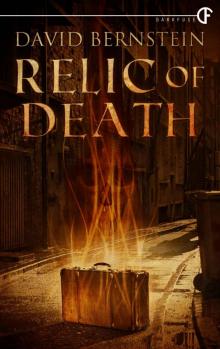 Relic of Death
Relic of Death Machines of the Dead aza-1
Machines of the Dead aza-1 Machines of the Dead
Machines of the Dead Surrogate
Surrogate Apartment 7C
Apartment 7C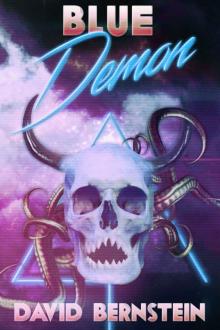 Blue Demon
Blue Demon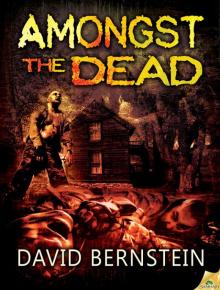 Amongst the Dead
Amongst the Dead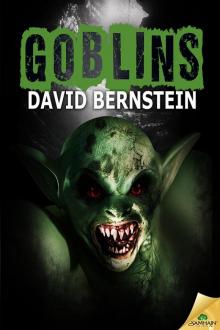 Goblins
Goblins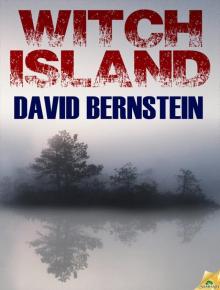 Witch Island
Witch Island Another Man's Wife plus 3 Other Tales of Horror
Another Man's Wife plus 3 Other Tales of Horror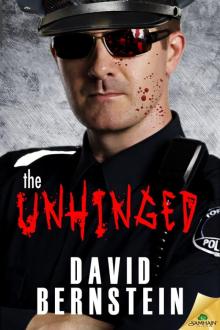 The Unhinged
The Unhinged Episodes of Violence
Episodes of Violence Machines of the Dead (Book 2)
Machines of the Dead (Book 2) Jackpot
Jackpot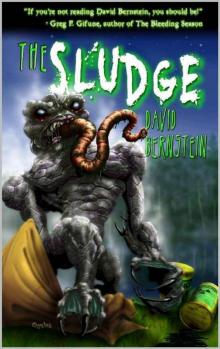 The Sludge
The Sludge Machines of the Dead 3
Machines of the Dead 3